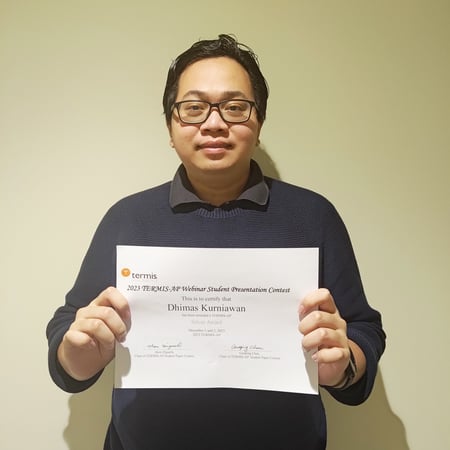Share this
On 2nd December 2023, Dhimas Agung Kurniawan(D2), Department of Chemical System Engineering, received Silver Award, 2023 TERMIS-AP (Tissue Engineering and Regenerative Medicine International Society, Asian-Pacific Chapter) Webinar Student Presentation Contest.

Silver Award, 2023 TERMIS-AP (Tissue Engineering and Regenerative Medicine International Society, Asian-Pacific Chapter) Webinar Student Presentation Contest
This award is given to encourage the students to promote their research activity in tissue engineering and regenerative medicine in Asia and Pacific regions. The evaluation is based on the research topic, presentation delivery and discussion capability.
About awarded research
As the absorption and metabolism site for oral drugs, gut-liver axis is important point of study in drug development. Both organs are interconnected through enterohepatic circulation, which implies there is crosstalk through circulating factors that may affect drug metabolism. Several studies have observed gut-liver interactions affect drug metabolism, but the mechanism is unclear. Studying such mechanisms is difficult to do using animal models. Multi-organ microphysiological system (MPS) is a promising in vitro approach which allows focused study on any specific organ combinations. In this study we used MPS to coculture hepatocytes and intestinal epithelial cells. We successfully maintained high function on each cell by increasing oxygen supply and perfusion to the culture system. Transcriptomics analysis indicated that bile acids and arachidonic acids may play important roles in enhancing hepatic drug metabolism. Overall, this study demonstrated the importance of appropriate MPS features to effectively maintain cell functionality which ultimately allows studying novel multi-organ crosstalk.
Your impression & future plan
In the near future, we plan to further develop this cell culture system which can include gut-liver interactions as model for first-pass metabolism. Hopefully, in the future this can be a great alternative to animal models and contribute to the advancement of the drug development process. We are grateful to receive this award, which further motivates us to continue this study.These Related Stories


